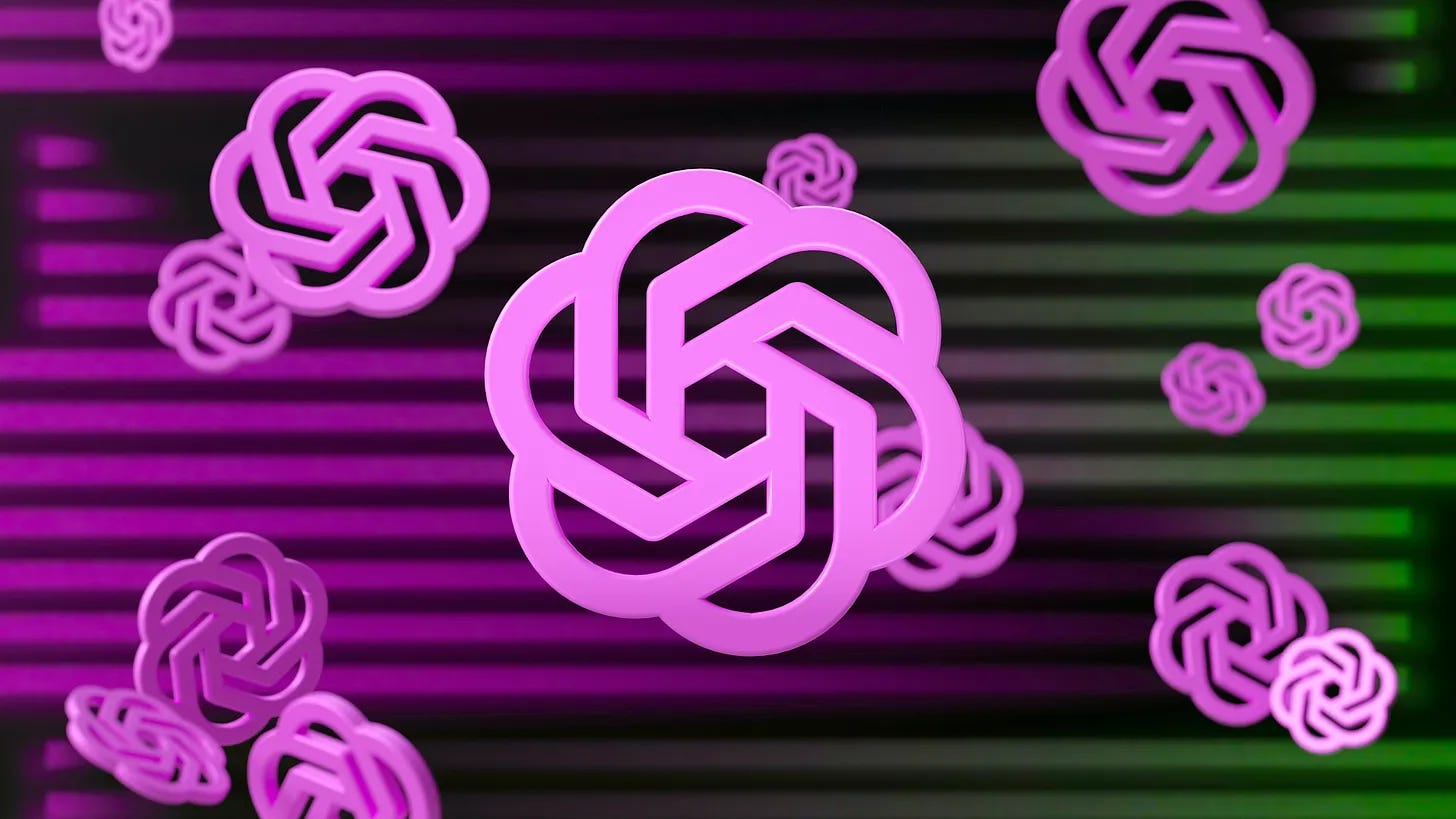AI Roundup 048: The Robot Constitution
January 5, 2024.
The Robot Constitution
DeepMind has released three new advances in robotics to help make faster, smarter, and safer robots - including a "Robot Constitution" inspired by Isaac Asimov. More specifically: AutoRT, SARA-RT, and RT-Trajectory.
Between the lines:
AutoRT is a system of multi-modal foundation models that autonomously use robots to collect real-world data.
SARA-RT is a new neural network architecture, aimed at making transformers more efficient when it comes to building robotic control systems.
And RT-Trajectory is a model that converts natural language instructions to 2D "trajectories" that can guide robots with unclear tasks, i.e., "wipe the table."
Where we're headed:
Robotics AI has mostly taken a backseat to software products in 2023, but there have been impressive demos like pencil tricks, Doc Ock arms, and home automation robots.
Some believe the next few years will be packed with breakthroughs in robotics - including a prominent Nvidia researcher, who says we're ~3 years out from a "ChatGPT moment" for physical AI agents.
I’m looking forward to digging into more robotics breakthroughs - I'm honest, I don't cover hardware-related AI as thoroughly as I should.
Elsewhere in the FAANG free-for-all:
Microsoft goes all-in with a Copilot keyboard key - the first major change to the PC keyboard in nearly 30 years.
Google appears to be working on a more advanced, paid version of Bard.
And Samsung is planning its next Galaxy Unpacked event later this month and is expected to showcase AI-centric hardware.

Paying attention
After months of operating on the fringes, AI influencers are poised to go mainstream. And with the latest AI-influencer making real money, human influencers are getting concerned.
Why it matters:
We've barely figured out how to deal with parasocial relationships and perceived intimacy at scale, and now we're adding AI to the mix. I'm sure this will end well.
It's worth considering that if the technology is good enough to create believable AI influencers, it's also good enough to do extremely believable catfishing.
And while it's easy to dismiss influencers' concerns, there remain hard questions: Should AI-personas have to disclose that they aren't real? Is AI-powered promotion the same as an ad?
Elsewhere in AI anxiety:
A look at AI chatbots that replicate experts and thought leaders, and the legal gray area in which they operate.
A profile of David Holz, the founder of Midjourney, at a time when elections are about to grapple with AI misinformation.
And (yet another) look at EAs and how they influence the White House, Congress, and DC think tanks on AI.
OpenAI has a lot going on
Despite no major launches, OpenAI made several appearances in the headlines this week.
What to watch:
OpenAI is launching the GPT Store next week.
The NY Times has a profile of Alexander Reben, OpenAI's first artist-in-residence, amid a debate over AI art.
New reports say that the company's content licensing deals pay between $1 million and $5 million a year.
ChatGPT's codebase suggests that it could become a replacement for Google Assistant on Android phones.
Despite the CEO drama, OpenAI reportedly makes $1.6 billion in annualized revenue.
And Gary Marcus argues that OpenAI will face many more copyright lawsuits, given how easy it is to produce copyright-infringing materials with DALL-E.
Things happen
Chief Justice John Roberts urges "caution and humility" to lawyers using AI. Politicians, not AI, are the biggest threat to elections. The "I Hate AI" License. The Techno-Pragmatist Manifesto. Perplexity raises $74M to try and upend search. The "I" in LLM stands for "Intelligence". AI and satellite images create first global map of ship traffic. "AI will help make Web3 usable." How Figma is adding AI to its products. AI Elvis is making a comeback. Rosebud - turn game descriptions into browser games. New bill stops California from working with unethical AI companies. Why Apple has a chance to set industry standards for AI privacy.
Last week's roundup
AI Roundup 047: NYT v. OpenAI
With less than five days left in the year, we have one last big piece of AI news: the New York Times sued OpenAI and Microsoft for copyright infringement.






S!ck shit coming our wAI.